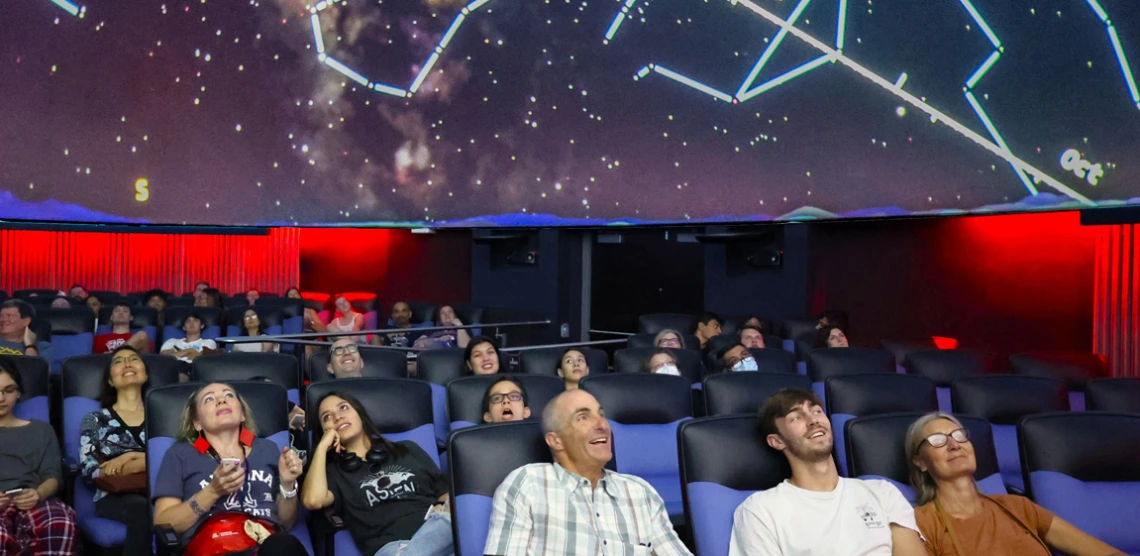Music Rights
The information below provides details on music performance licenses and rights that the University of Arizona has secured and paid for in order to play and perform music on campus and at certain university-affiliated events.
What licenses does the University of Arizona hold?
The university has blanket agreements with the performance rights organizations (PROs) below. These agreements allow the university to publicly perform or play music from the catalogs of these PROs in certain permitted scenarios.
- American Society of Composers, Authors and Publishers – (ASCAP)
- Broadcast Music, Inc - (BMI)
- Global Music Right (GMR)
- Society of European Stage Authors and Composers - (SESAC)
What are the permitted uses of the university’s licenses?
- On-campus functions such as athletic events, exercise classes, recorded music piped into bookstores and Student Union cafeterias and markets.
- On-campus events and performances by university faculty, staff, students, and affiliated groups such as fraternities and sororities.
- Off-campus performances related to educational/outreach activities by university groups like bands or choruses.
- Streaming and webcasts of university radio/TV stations.
- “On-hold” music for campus telephone systems.

What uses are not permitted?
- Events sponsored, co-sponsored or promoted by third-parties, even if university groups participate. The licenses are not intended to cover events or functions sponsored by organizations not affiliated with the university even if they may be held on campus property. Third parties must obtain their own licenses.
- Commercial broadcasts or transmissions outside of permitted university channels.
- Dramatic performances like musicals, operas, dance, or plays containing music (requires additional rights).
- Use of jukeboxes.
- Recording, filming, or reproducing performances (separate sync license required).
How can one verify if a particular song is covered by the university's music licenses?
It is the responsibility of the university members to check the catalogs of each rights organization to determine if specific music is covered. Some music may be covered by multiple organizations. Should your planned usage fall beyond the parameters covered by the existing licenses, or if you wish to utilize music not found within any of the organizations' catalogs, you will likely need to acquire separate permission prior to proceeding.
You can search the database of the organizations below for specific song coverage information:
- The SONGVIEW database allows you to search both ASCAP and BMI musical works simultaneously for greater accessibility and transparency. It’s available on both the ASCAP and BMI websites.
- American Society of Composers, Authors and Publishers – (ASCAP)
- Type in song title and/or performer, click search.
- Broadcast Music, Inc - (BMI)
- Use the drop-down menu to select artist or title, type in and click search.
- Global Music Right (GMR)
- Use the “Search Catalog" field to search by artist or title.
- Society of European Stage Authors and Composers – (SESAC)
- Accept terms and start searching.
How can one use music alongside video content?
It is important to note that the blanket agreements preclude the simultaneous playing of music alongside video content, as that use necessitates obtaining an additional license known as a synchronization license.

How can one negotiate music rights for recording or video content?
Use of existing songs and recordings in videos must be licensed by the University prior to use. This includes recordings of ceremonies and events posted online featuring live music playing at the event. Music licensing agreements are extremely complex negotiations requiring comprehensive knowledge of the various licenses covering performers, musicians, and composers. For guidance in this activity, please contact brand@arizona.edu.
More Information
For information and assistance with the music rights mentioned above, please email brand@arizona.edu.
Frequently Asked Questions (FAQs)
The university license agreements are restricted to all states in the United States. International use requires an additional license.
Yes, as long as the event is a live show and is not filmed or recorded.
If the department invites or hires a third party to perform in a campus facility as part of a program sponsored by the department, the performance probably would be covered. However, please ensure to verify that the music played is covered by the university's music licenses.
No. The licenses are not intended to cover events or functions sponsored by organizations not affiliated with the university simply because they are held on campus property. They must obtain their own licenses.
The agreement only covers individual songs licensed with the above listed PROs. If you are building a playlist in Spotify or another music compilation tool, you must verify that each song in the playlist that is used is fully covered by one or more of these PROs.
No. Unless you enter into a special agreement for a synchronization license, which allows for the publication of a music track alongside a video track. This is different from a performance license. The easiest option is to remove or replace the audio track before posting online.
No. This usage would also require a synchronization license. The best option is to remove or replace the audio track(s) before posting online.

